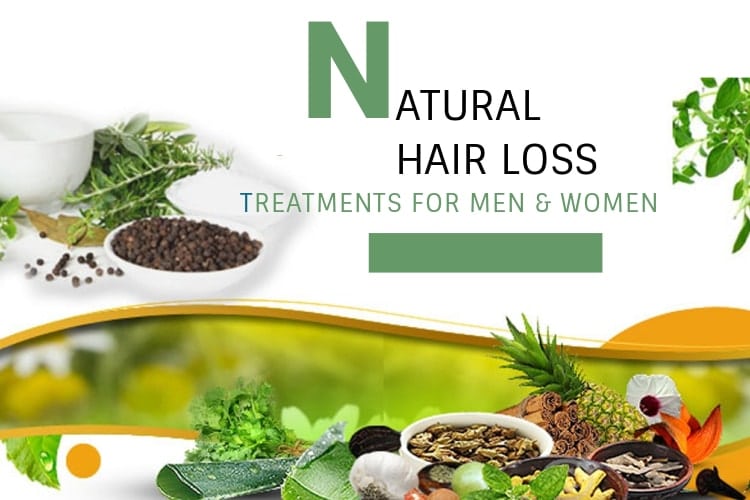
Alopecia Areata: 20 Natural Remedies For Hair Loss
If you’ve seen a lot of extra hair on your pillow, brush, or shower drain, or you’ve noticed odd little bald spots in the mirror, you might have an autoimmune disorder called alopecia areata. When you have an autoimmune disease, your immune system attacks your own body. With alopecia areata, it’s the hair follicles that are attacked. This causes the hair to come out, often in clumps the size and shape of a quarter.
The amount of hair loss is different in everyone. Some people lose it only in a few spots. Others lose a lot. It’s rare, but you can lose all the hair on your head (alopecia areata totalis) or entire body (alopecia areata universalis). Each case of alopecia areata is different. Sometimes, hair grows back but falls out again later. In others, hair grows back for good.
Table of Contents
Natural Remedies
Here are some natural remedies that helped others recover from Alopecia Areata (Hair Loss)
Ginkgo Biloba
Seriously, the heartbreak that comes with the multiple loose strands attached to our comb can be avoided with the use of this potent herb. Ginkgo Biloba can significantly reduce hair thinning (Alopecia Areata). Used in combination with other herbal oils, ginkgo biloba is a natural way to prevent hair problems.
How to use
You can take ginkgo in the form of supplements. Check with your doctor for the correct dosage.
Vitamin D
Vitamin D stimulates hair follicles, so a deficiency may lead to hair loss. There is some evidence that having a vitamin D deficiency does cause hair loss and other hair problems. Vitamin D stimulates hair follicles to grow, and so when the body does not have enough, the hair may be affected. A vitamin D deficiency may also be linked to alopecia areata, an autoimmune condition that causes patchy hair loss.
Research shows that people with alopecia areata have much lower levels of vitamin D than people who do not have alopecia. Vitamin D deficiency can also play a role in hair loss in people without alopecia. Other research shows that women who have other forms of hair loss also had lower levels of vitamin D.
Almond Oil
Almond oil contains all kinds of healthy ingredients for hair like Omega-3 fatty acids, phospholipids, vitamin E, and magnesium. Using almond oil nourishes and strengthens your hair, and is optimal for treating hair loss (alopecia areata) and damaged hair. A few drops go a long way to add silkiness and shine and nourish the scalp.
Although there’s not much research to back up just how almond oil can contribute to hair care, this oil is frequently in products that increase hair growth. Using almond oil frequently will reduce dandruff and split ends and might consequently stop hair fall in alopecia areata.
How to use
Apply almond oil to your hair, leave it overnight, and shampoo it off with lukewarm water.
Rosemary Oil
Rosemary is another great essential oil that can treat alopecia areata. One study compared the effectiveness of rosemary in treating alopecia to that of a commonly recommended medicine for the condition, minoxidil. Although both produced equivalent hair growth, rosemary did not cause as much scalp itching as minoxidil did. The oil also works well as a part of aromatherapy blends for alopecia areata. Plus, while minoxidil disrupts hormonal balance, rosemary has no such side effects.
How to use
Mix rosemary with a carrier oil or make a blend and massage onto the scalp. Alternatively, boil and strain rosemary leaves in water and wash your hair with it.
Lavender Oil
Lavender essential oil recently gained attention for stimulating hair growth. Studies have shown people’s hair to grow thicker and faster than normal using lavender oil. This benefit is way more effective when the oil can work itself into the skin. Per these studies, lavender oil may help with issues like pattern baldness or alopecia.
How to use
Hair Loss can be helped by essential oils that help circulation, cleanse the scalp to encourage follicle growth. Essential oils can be used for hair loss, as they cleanse the scalp to encourage follicle growth and circulation. A good blend for Hair Loss is Rosemary, Lavender, Cedarwood, and Thyme. Blend the oil and apply it.
Garlic Juice
Garlic, just like onions, nourishes your hair while spicing up your dishes. This sulfur-rich veggie is one of the best natural treatments for alopecia. It boosts hair growth and prevents hair fall by increasing collagen production.
How to use
Crush a few garlic cloves and squeeze to get the juice. Mix this with a few spoons of coconut oil and let it simmer over heat for a few minutes. Take it off the heat, let it cool, apply on your scalp, and massage. Wash it off with cool water after 30 minutes.

Onion Juice
Onions are those wonderful veggies that can make any dish taste that much better! But you’ve more reason than this to stock up on onions in your kitchen – they increase the regrowth of hair in the bald patches in alopecia areata patients! Onions contain a high amount of sulfur and can fight free radical damage. They can improve blood circulation in the scalp and prevent any kind of infection that cause hair loss.
How to use
Crush an onion to get its juice. Apply this on your scalp. Leave it for about 15 mins and shampoo it off with warm water. Alternatively, rub onion skins on the balding areas. Remember to let your hair dry naturally; do not blow-dry.
Eggs
Eggs contain many nutrients, including sulfur, iodine, and protein, which might boost hair growth. Mix egg whites with a spoon of olive oil. Apply this on your hair, leave for about 15 minutes, and shampoo.
Oatmeal
Oatmeal is believed to curb hair loss with its omega-3 fatty acid content. Having oatmeal for at least one of your daily meals can provide you with nutrients that might be good for your hair.
Lemon
Lemon is commonly used to reduce dandruff over a shorter period and hence is believed to induce hair growth in alopecia.
Aloe vera gel
Aloe vera gel is frequently recommended for application on the scalp to treat hair loss.

Citrus fruits
Citrus fruits and vegetables rich in vitamin C might help protect your hair from damage.

Milk thistle
Ginkgo helps to stimulate circulation and the growth of new hair, while milk thistle helps to detoxify your body and has been linked to protecting the health of your scalp and body hair.
Cinnamon
One common home remedy is a mixture of honey and cinnamon for hair loss. The suggestion is that when applied in a mask, the cinnamon stimulates circulation to the skin, and therefore, improves the flow of nutrient-rich blood to the hair follicles.
Silicon-rich vegetables
A deficiency can cause brittle hair. Other high-biotin foods include peanuts, almonds, wheat bran, salmon, low-fat cheese, and avocados. Bananas, beer, oats, and raisins. These contain the mineral silica, which is thought to improve hair thickness. Consuming adequate amounts of a mineral-like silica can maintain the health of your hair and scalp, and a deficiency might lead to hair loss.
Bananas
Medical experts agree that the key to maintaining hair growth is having a balanced diet, and a lack of potassium could lead to several health risks, as well as hair loss (alopecia). Fortunately, bananas are naturally rich in potassium and can easily satisfy that sweet tooth. You can drink juice made of bananas, milk, and honey.
Stress
Stress can cause hair loss. Here are some alternative methods to help keep your stress level low.
Exercise
Exercise is a great way to eliminate stress. Try walking or working in your garden.
Follow your passion (Hobbies)
Occupying yourself with something that you enjoy doing can be a great way to combat stress. Consider joining an organization, doing community activities, going to the movies, or learning to play an instrument.
Keeping a journal
Try taking a few minutes each day to write about your emotions. Set some long and short-term goals for yourself too. express the way you feel on paper can help you to relieve your negative emotions. Positive thinking is key.
Breathing and meditation
Meditation and breathing exercises are great ways to allow yourself to focus and relieve unwanted stress. You may also wish to try techniques that combine meditation, yoga, or tai chi like Qigong.




















